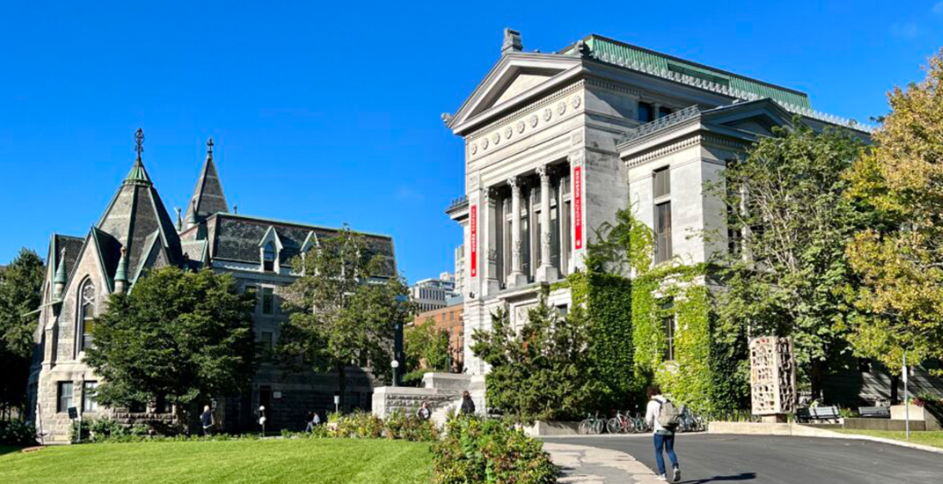
Study in Canada
Canada is a top destination for international students, offering world-class education, affordability, and a safe, welcoming environment. Known for its high academic standards and research-oriented programs, Canada attracts students from around the globe to its diverse and inclusive communities.
Why Study in Canada?
High-Quality Education
Canadian universities and colleges consistently rank among the best in the world, with a strong emphasis on academic excellence and research.
Degrees from Canadian institutions are globally recognized and respected by employers and academia alike.
Affordable Tuition Fees
Compared to other top study destinations like the U.S. or UK, Canada offers more affordable tuition rates and living expenses.
Multicultural Environment
Canada is one of the most diverse countries in the world, fostering an inclusive and welcoming atmosphere for students of all backgrounds.
Multilingual opportunities in English and French enhance cultural exposure and language skills.
Work Opportunities
International students can work part-time during studies and full-time during scheduled breaks.
Post-graduation, students can apply for a Post-Graduation Work Permit (PGWP) to gain work experience in Canada.
Pathways to Immigration
Canada’s immigration policies provide options for students to transition to permanent residency through programs like the Canadian Experience Class under Express Entry.
Quality of Life
Known for its safety, natural beauty, and excellent healthcare system, Canada offers an outstanding quality of life for students.
Structure of Higher Education in Canada
Universities
Offer bachelor’s, master’s, and doctoral degrees.
Focus on academic and professional programs, including research.
Colleges and Institutes
Provide diploma, certificate, and applied degree programs.
Focus on practical, career-oriented training.
Vocational and Technical Schools
Specialize in skill-based education and training for specific trades and industries.
Language Schools
Offer programs in English or French to improve language proficiency before or during academic studies.
Admission Process
Research and Shortlisting
Explore universities and programs that align with your academic interests and career goals.
Popular institutions include the University of Toronto, McGill University, University of British Columbia, and more.
Application Materials
Academic transcripts, letters of recommendation, statement of purpose, and resume.
Proof of language proficiency (e.g., IELTS, TOEFL for English; TEF for French).
Application Deadlines
Fall intake (September): Major intake, deadlines from December to March.
Winter intake (January): Deadlines from September to November.
Acceptance and Study Permit
Receive a letter of acceptance and apply for a study permit through Immigration, Refugees, and Citizenship Canada (IRCC).
Cost of Studying in Canada
Tuition Fees
Undergraduate: CAD 15,000–30,000 per year.
Postgraduate: CAD 18,000–40,000 per year.
Colleges and technical institutes: CAD 10,000–20,000 per year.
Living Expenses
Estimated CAD 10,000–15,000 annually, depending on location.
Covers housing, food, transportation, and personal expenses.
Scholarships and Financial Aid
Canadian universities and government programs offer merit-based scholarships.
Examples include the Vanier Canada Graduate Scholarship and Banting Postdoctoral Fellowships.
Student Life in Canada
Campus Facilities
Universities provide state-of-the-art libraries, laboratories, and recreational centers.
Cultural Experiences
Students can experience a rich blend of cultures, cuisines, and festivals.
Canada’s natural beauty, including national parks and outdoor activities, enhances the student experience.
Support for International Students
Institutions offer dedicated services such as academic advising, career counseling, and settlement assistance.
Work and Immigration Opportunities
Work During Studies
Students can work up to 20 hours per week during term time and full-time during holidays.
Post-Graduation Work Permit (PGWP)
Valid for up to 3 years, allowing graduates to gain valuable work experience.
Immigration Pathways
Programs like the Provincial Nominee Program (PNP) and Express Entry provide routes to permanent residency.
Challenges for International Students
Weather
Canada’s winters can be harsh, especially in northern and inland areas, requiring adjustment.
Financial Planning
Although affordable, students must budget for tuition and living costs effectively.
Academic Adjustment
Canadian education emphasizes independent learning, critical thinking, and participation, which may differ from other countries.
Conclusion
Canada’s combination of world-class education, affordability, and inclusive culture makes it a top destination for international students. With excellent work and immigration opportunities, studying in Canada is not just an academic investment but a stepping stone to a bright future.
